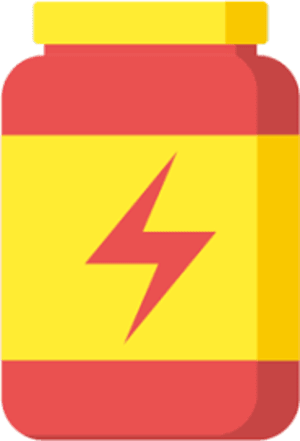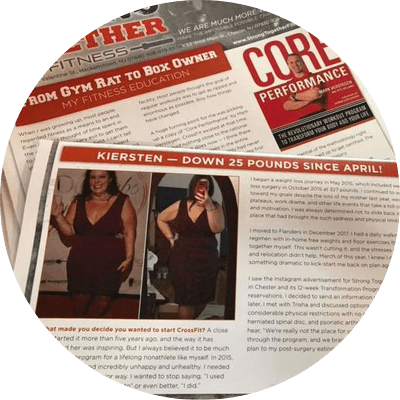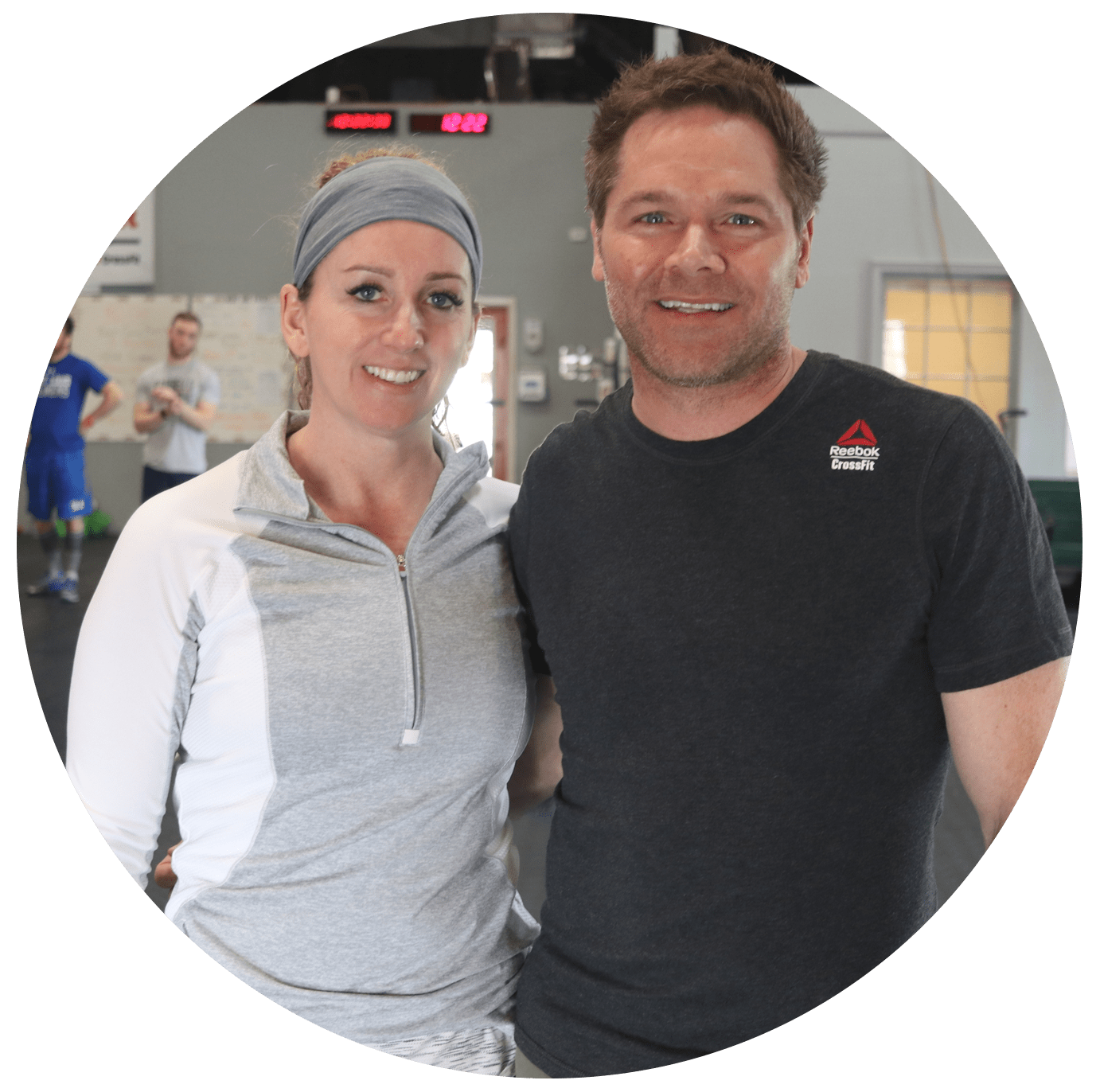
It's easier than ever to get lost in the myriad of online fitness articles that look a bit too much like an advertisement. Even if your only exposure to the supplement world is a gym buddies rant on his new Guarana root extract pills, you might have some questions. This is coach Joe, I wanted to give you all the lowdown on a few popular options and try to dispel a few myths that tend to get passed around. enjoy!
Preworkout
Designed to hype you up for your workout, pump up your muscles, or help you focus, it's obvious why preworkout is such a popular product. But very few people actually know what is in their tiny scoop of powder. Preworkout can contain, well, just about anything really, and sometimes just about everything! The ingredient list on some of these supplements barely fit on the bottles. The regulars include Caffeine, Beta-Alanine, Creatine Monohydrate, and BCAAs, all tried and true energy boosters. Where things can potentially get sketchy is in the amounts and mixes of ingredients. For example, some brands can contain 500mg of caffeine! Add that to a mix of other easy-to-overdose stimulants like Yohimbine, Theobrominne, DMAA, or Ephedrine, and you're one rounded scoop away from a heart attack. Taking multiple scoops is unbelievably common and not usually well thought through. A tolerance for caffeine and some other substances can be built up over time, making users feel like they need to double, or triple (it does happen!) the serving size. While the body can adapt to caffeine, this is not the case with all stimulants. So in trying to double ingredient X, ingredient Y is also doubled and can be dangerous.
I don't have an agenda to scare you away from preworkouts, plenty of people swear by them, and never have any issues. What's important is that you know everything in a supplement before you take it and spend the time to research possible effects.
Protein Powder:
Whey, Casein, Soy, Chocolate, Vanilla. They all claim to get you more swole than the next, but do you need any of them? Maybe... Daily intake recommendations from different research bodies vary. At the low end the USDA recommends 0.8g per kg of body weight and on the higher end the National Strength and Conditioning Association suggests 2g per kg of body weight. Age, gender, and activity level all have an impact on your personal needs. Any excess on top of your needs (even if there’s a picture of a bicep on the tub) will not build you more muscle but instead be stored as fat just like excess carbohydrates. Where protein comes in handy is for individuals who lack sufficient protein intake from their diet like meat, dairy, and eggs to name a few. Vegetarians, vegans, or anyone with restricted food options can likely see increased muscle growth with the addition of a protein shake. Or for convenience. People with busy work schedules, travel habits, or just anyone who would rather chug a shake and save 10 minutes over cooking a meal will also really appreciate this supplement.
Aminos
Amino acids, or BCAAs (a select 3 essential amino acids) are taken to prevent muscle breakdown during long exercise sessions, speed recovery, burn fat, and a big list of other claims we’d love to be true. Amino acids are the building blocks of protein, and protein is used in the body for way more than just building muscle, which is why supplementation's claimed effects are so vast. When a closer look is taken at studies on the subject, it becomes apparent that as far as the exercise claims go, taking aminos really only benefits athletes with insufficient protein intake. “But that one jacked guy eats his weight in chicken and still drinks BCAAs, what’s the deal!?" During long bouts of exercise or when working out at a severe caloric deficit amino supplements can delay muscle breakdown, and signal cells to rebuild damaged tissue faster. Why not just eat some protein mid workout? This is where the real benefit lies. Ingesting food will signal the body to stop burning fat for energy and use the food instead, just like Coach Christine mentioned in this week's AMRAP video. Amino acids don't have this effect, giving you the perks of protein without withdrawing you from the coveted "fat burning zone."
HGH
I’ll be quick here since this one is so black and white. Human growth hormone got its name for a reason is stimulates muscle, collagen, bone and other cell growth catching the eye of gym rats everywhere. Despite no evidence of athletic benefits, synthesized HGH is widely used and frequently incurs side effects of swelling, numbness, raised cholesterol, increased risk of diabetes and nerve and joint pain. HGH can be prescribed by a medical professional to treat legitimate medical conditions. Being small is not one of them.
Testosterone
Testosterone is known to be a key factor in muscle growth, so of course there is always a new product claiming to get you more of it. Test boosters are a type of herbal supplement aimed at increasing testosterone production or inhibiting T breakdown. Common active ingredients include ZMA, D-Aspartic Acid (DAA), and Tribulus Terrestris or TT. Despite a lack of conclusive studies TT continues to be widely sold. ZMA is a combination of zinc monomethionine aspartate, magnesium aspartate, and vitamin B6. Some studies have shown dramatic benefits of this formula, and others have shown none. The common consensus is that tests showing results had small sample sizes, participants with mineral deficiencies, or scientists with financial ties to the supplement manufacturer. The short truth is that Individuals lacking one or more of these minerals may benefit in sleep quality, helping the body naturally regulate hormones, but that’s where the story ends.
DAA is one of the few if not the only active ingredients proven to increase testosterone levels. But it only does so in men who have reduced levels because of age or other factors. DAA will have no effect in women, and short lived effects on healthy men, typically reverting back to base levels within a week.
Fat burners:
As well as a preworkout caffeine is often the main ingredient in fat burning supplements. It can decrease the rate of carb metabolism and increase the rate of fat metabolism, helping you burn fat. As well as making use of the more abundant energy source of fat, increasing capacity for long duration aerobic exercise. But even though caffeine is a household name it is important to realize the possible adverse effects. Doses of 15mg per kg of bodyweight have been shown to cause nervousness, hypertension, insomnia, gastrointestinal distress, slowed heart rate and more. Now that is a lot of caffeine, but even smaller doses can have an effect on sleep quality, reducing the rest crucial to rebuilding muscle and regulating metabolism.
L-carnitine is another common fat burner. It exists naturally in the body, and has been correlated to fat metabolism, but it turns out that ingesting extra carnitine has never been proven to yield results. The National Institutes of Health says that L-Carnitine supplementation is unnecessary for healthy individuals.
There are plenty of other active ingredients that are used in fat burners but the quick answer is that anything claiming to be natural won’t have a dramatic effect, and anything that does melt away fat has already been made illegal because of the serious side effects.
Nitric oxide
N.O. supplements have a few claimed benefits. Increasing circulation, increasing production of adrenaline and other hormones, increased strength and raising lactic acid threshold. Some of them have been proven true, others haven’t. Supplements usually have an active ingredient of either L-arginine or L-citrulline; amino acids used in the body’s production of N.O. Supplying the ingredients to make a chemical in the body can help but it’s important to note that if the walls of an athlete’s arteries are covered in plaque the body’s natural production systems are at a handicap. So, antioxidant rich foods should be prioritized long before additional N.O. is considered. To wrap up, studies have shown the benefits of L-arginine and L-citrulline for mid length endurance activities (think running a mile) and speed recovery between sets of strength training by clearing lactic acid. But results for different ages and fitness levels will vary. Any N.O. booster should also be approved by a doctor in patients with a heart or circulatory condition.
Steroids:
yeah, we’re going there… briefly. There is a novel to be written on these but here’s the cliff notes. Anabolic steroids are basically a synthesized testosterone replacement, it signals your cells to increase the enzyme systems involved with protein metabolism. This doesn’t mean you can just take a pill and look like Arnold. Rather it gives the athlete the ability to lift heavy weights for hours and be recovered to lift use those same muscles the very next day. Although muscles will recover extremely quickly after exercise, steroids do not have this effect on all bodily tissues, which is why so many bodybuilders tear tendons which are slower to adapt. Now here’s the other things steroids will do. Cause Acne, cause testicular atrophy in men, increase likelihood of prostate cancer, cause liver and kidney damage, cause mood swings depression and aggression, increase cholesterol, cause sterility, cause breast shrinkage, lowered voice, and body hair in females, cause balding, blood clotting disorders… the list goes on. in summary: do they work? Yes. Should anyone take them? No. They will destroy not only your body, but your relationships, your mind, and sometimes take your life. Professional body builders are not ignorant of these effects but rather weigh their career against their health and make a choice. I don't think any of my readers are signed up for 2017 Mr. Olympia..
There seems to be a reoccurring theme here. Nothing can take the place of a healthy diet, hard work in the gym, quality rest, and a health-conscious lifestyle. Some supplements may get you more out of your workout. But I hope to at least have educated you a bit, and inspired you to do your own research next time a GNC employee tries to sell you an extra bottle of pills!



